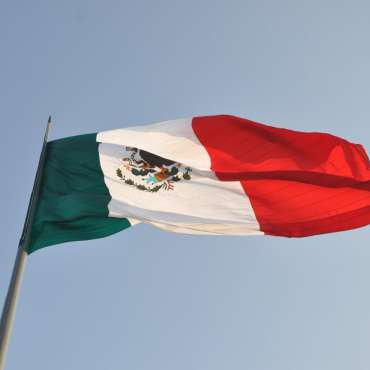Florida's Supreme Court has denied a petition from a pair of pari-mutuels to hear their case against Governor Ron DeSantis and the state legislature that could have altered the future of sports betting in Florida.
Justice Meredith Sasso wrote that West Flagler and Associates (WFA) chose the wrong “vehicle” to seek relief.
“Quo warranto is not, and has never been, the proper vehicle to obtain a declaration as to the substantive constitutionality of an enacted law. For that reason, we deny the petition because the relief that petitioners seek is beyond what the writ of quo warranto provides.”
The latest Florida Supreme Court decision may not be the end for WFA in Florida. The pari-mutuels chose to bypass filing in district court and went straight to the Florida Supreme Court.
But Bob Jarvis, a constitutional law professor at NOVA Southeastern, told iGB that WFA could now “follow the correct route and sue in the Leon County Circuit Court in Tallahassee”. Jarvis does not believe that WFA will win its cases at any level.
WFA also still has a case pending in US Supreme Court, where it has sued the US Department of the Interior (DOI), claiming that it was out of bounds in approving the 2021 Florida-Seminole compact. That compact allows the tribe to offer statewide mobile sports betting and to deem any bet placed in the state of Florida to have been placed on tribal lands if it flows through a server on Seminole land.
“This is a major victory for the people of the state of Florida, who can count on billions of dollars over the coming years to fund important state needs,” Seminole spokesman Gary Bitner said in an email to iGB. “Floridians and visitors can enjoy statewide sports betting and expanded casino games, now and into the future. And it means the Seminole tribe of Florida can have confidence in the future.”
BIA regs say online wagering OK with state approval
The compact requires that the tribe pay the state $500m per year or $2.5bn over five years for the right to have a monopoly.
The compact has been under fire since it was approved by the state legislature and DeSantis in May 2021 because many believe that the compact violated the Indian Gaming Regulatory Act. But a new set of regulations from the Bureau of Indian Affairs say that bets taken off Indian lands but run through tribal servers are legal, as long as a state agrees. Those regulations go into effect on 22 March.
With the U.S. Supreme Court denying an injunction, Florida was added to the list of states that have legalized sports betting with a monopoly for the Seminole tribe.https://t.co/ZzKqBcGlWZ pic.twitter.com/mraMO2kjlD
— GGB (@GlobalGamingBiz) March 20, 2024
With court cases in process both in Florida Supreme Court and at the US Supreme Court, the Seminoles launched their Hard Rock Bet platform on 7 November 2023 and began opening brick-and-mortar sportsbooks across Florida a month later.
WFA has been trying to find a way to have the compact voided almost since it was approved by the DOI in the fall of 2021, saying that Seminole exclusivity for digital sports betting would be detrimental to their businesses. The company owns two pari-mutuels in South Florida.
Court: Quo warranto doesn’t replace injunctive relief
WFA argued in its Florida Supreme Court filing that the 2021 compact and its subsequent approval by the state legislature and DeSantis violate Florida law after Amendment 3 was passed by voters in 2018.
That law, Article X, Section 30 requires that any expansion of gaming go to the voters, but this one did not. In the government’s response to the WFA petition, it wrote that the court should deny the petition because WFA “seek(s) a declaration as to the substantive constitutionality of an enacted law.”
It is that argument that the court hung its opinion on.
“As we will explain, we agree with respondents (DeSantis et al) that quo warranto is not a substitute for what petitioners seek – declaratory and injunctive relief as to the substance of the law ratifying the gaming compact,” Sasso wrote.
She went on to explain why:
“Petitioners argue the governor and legislature “improperly exercised” their respective authority because the substance of the compact, reflected in sections 285.710(3)(b)-(14) and 849.142, Florida Statutes (2023), the implementing laws, is inconsistent with Article X, Section 30,” she continued.
“This is problematic because however far afield from its original function the current use of quo warranto has wandered, this court has never permitted use of the writ in the manner which petitioners seek – to address the substantive constitutionality of an enacted law… Furthermore, we have made clear that the writ of quo warranto is not a substitute for declaratory and injunctive relief. See Detzner vs Anstead, 256 So. 3d 820, 823 (Fla. 2018).”
In her opinion, Sasso does not directly address whether or not the compact and its approval are out of bounds, rather that the type of filing isn’t appropriate for the request.
In the US Supreme Court case, WFA filed its petition 11 February and the DOI has until 12 April to respond. From there, SCOTUS will determine if it will hear the case, although the court typically accepts between 100-150 cases of more than 7,000 filed every year.





